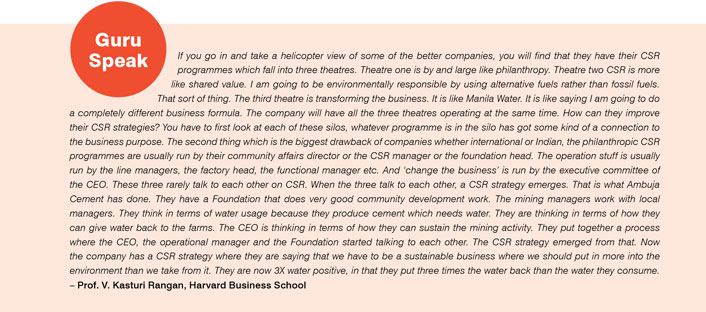Sustainability. The essence of our existence.
Stakeholder Engagement
Ambuja Cement Limited’s mission is to create value for all its stakeholders. The Company tries its best towards achieving these objectives. In about 30 years of our existence, we have engaged with varied groups of stakeholders at different levels to understand their expectations and to make them partners in our journey towards sustainable development. Our stakeholders are our strong pillars of support at all times. Recognising their value, we have created dedicated engagement vehicles for some of our stakeholder groups.
Approach to Stakeholder Engagement (Frequency by Type) GRI 102-40, 102-43
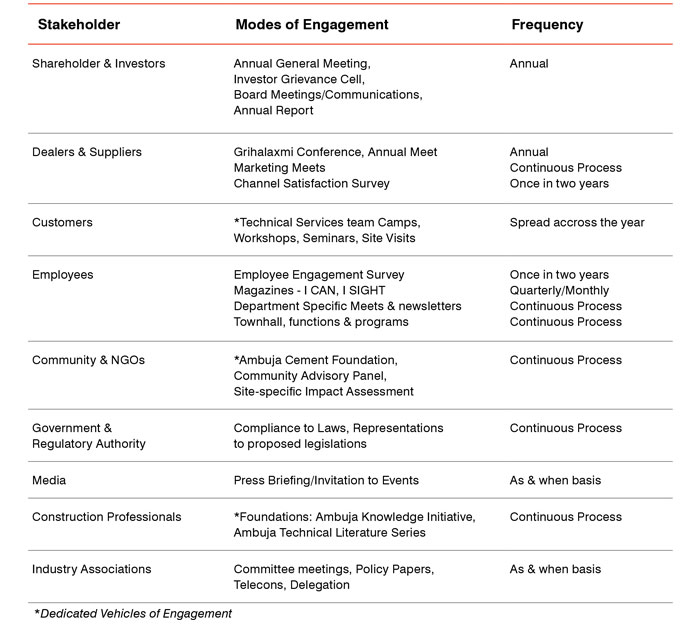
Basis for Identification and Prioritisation of Stakeholders GRI 102-42
A collaborative process of research, debate and discussion from multiple perspectives was used to determine a list of key stakeholders across the entire stakeholder spectrum. Key stakeholders were determined on the basis of three attributes:
- Peer companies’ stakeholders
- Relevant stakeholders for Ambuja Cement
- Interactions with Senior Management
Criteria for Stakeholder Mapping
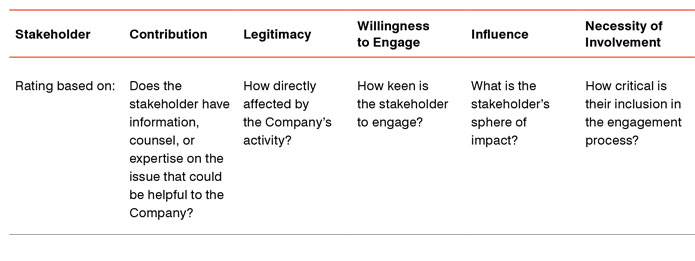
Through the above approach, the following key stakeholders were identified in accordance with GRI guidelines: Senior Management, employees, investors, suppliers, contractors and transporters, dealers, customers, community, regulatory bodies, policy-makers, government and research institutes, and NGOs. Stakeholders are prioritised based on their importance to the organisation. The major criteria in prioritising stakeholders are their criticality to business growth, their power to influence, the Company’s influence on them, stakeholder dependency, their potential for cooperation and those who can pose a threat. In this manner, the importance of each stakeholder is defined and the Company is clear about the manner in which it should engage with them. Engagement with key stakeholders was undertaken specifically as part of the Report preparation process. Based on their level of interaction with Senior Management and their impact on the business, stakeholders were prioritised as follows: customers, investors, employees, the community, suppliers, contractors and transporters, dealers, policy-makers, government and research institutes, and NGOs.
Key topics/concerns raised by different stakeholder groups during the engagement process along with the Company’s approach towards these issues are presented in the table below. GRI 102-44
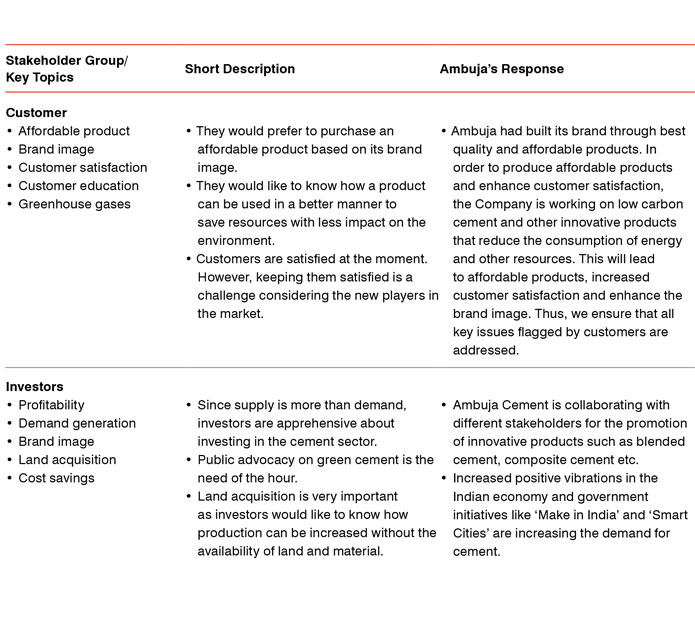
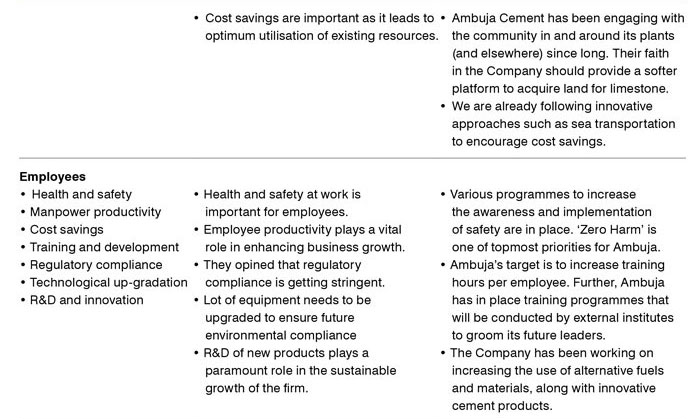
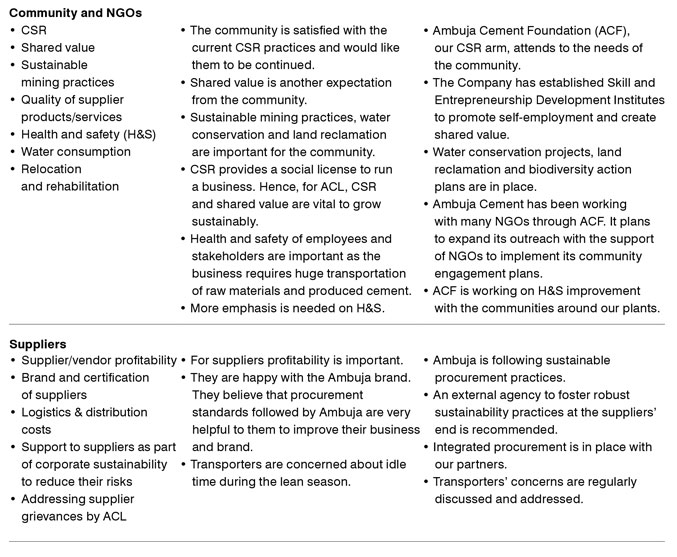
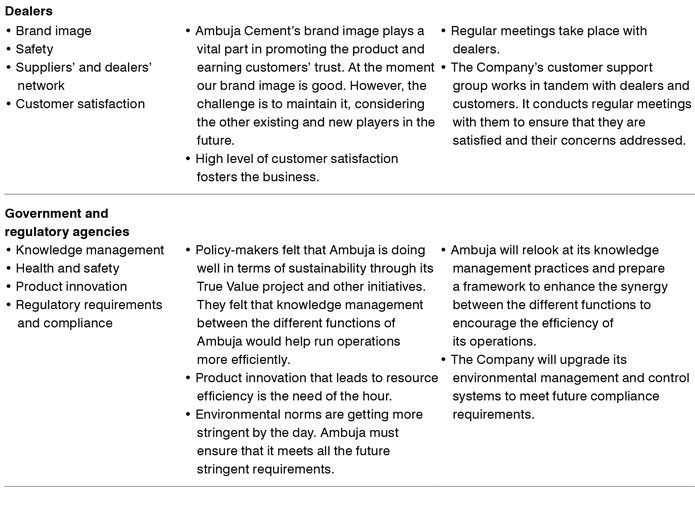
Site Specific Impact Assessment (SSIA), conducted by ACF, obtains a systematic and comprehensive overview of the plant’s impacts at the local level and helps to identify risks and opportunities. The assessment is done through consultations with internal and external stakeholders. Interviews and focus group discussions are conducted, involving the plant management team, employees, contract workers, trade unions, truckers, community members, contractors and local authorities. A proactive plan is made to mitigate any risks. SSIA captures the perceptions of all stakeholders at sites and enables the Company to address potential risks.
